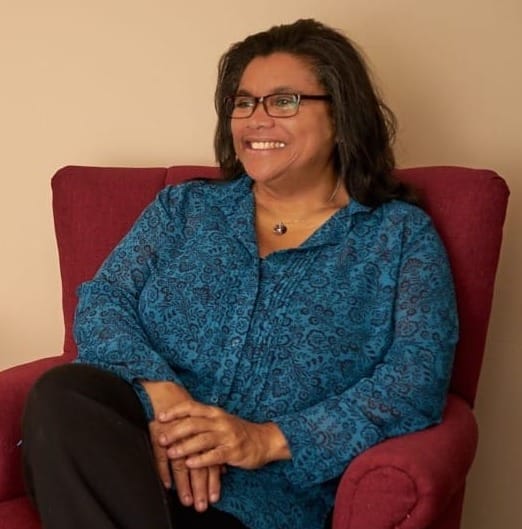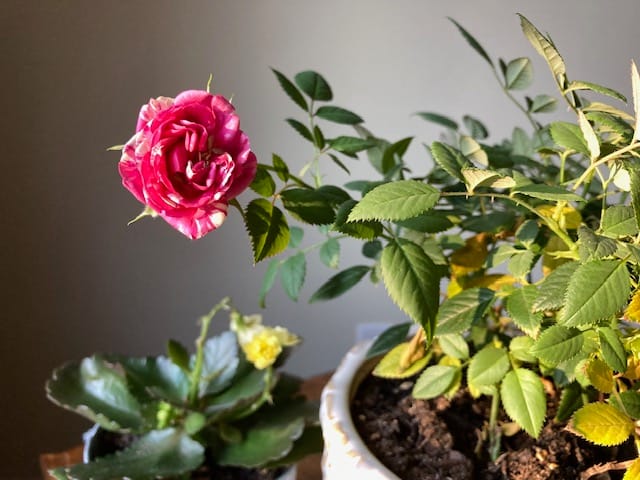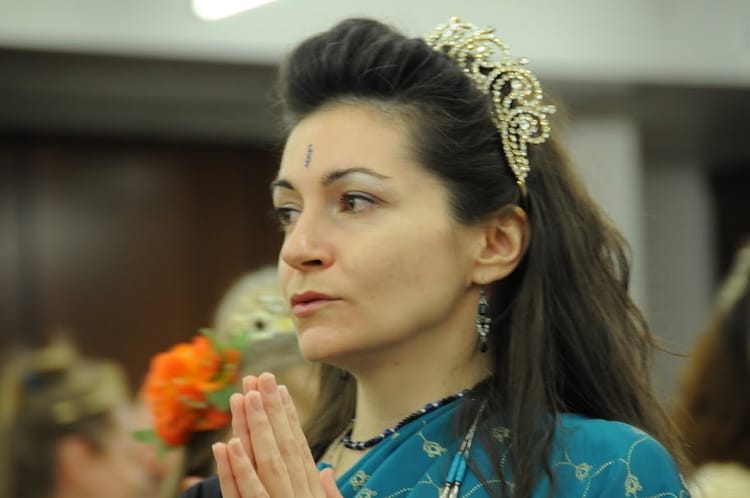Profile: Cindy E. Farrar

Cindy E. Farrar’s remarkably steadfast commitment to community is evident in all aspects of her career: massaging, volunteering, coaching, and teaching. A 1997 graduate of Atlanta School of Massage, not only has she been massaging for more than 25 years, she has volunteered for our oldest professional organization, American Massage Therapy Association (AMTA), for 22 consecutive years. Noting that massage therapy can be an isolating profession, Cindy stays engaged with AMTA for the support of the community as well as the opportunities it brings.
“I’ve had the opportunity to learn a lot. I’ve met with several counties and cities on (the topic of) their massage business ordinances. I started that work for my own business originally, and then I got involved at the chapter level -- in 2012 I became an AMTA chapter president into 2014 -- and those two years were full of meetings with local legislators. Ultimately, the chapter hired a lobbyist to help at the (Georgia) state level. So that’s kind of in my blood, and I’ve been working with the City of Tucker on their ordinances… including adopted ordinances that weren’t favorable to massage therapy. I’ve gotten the relationship with them to the point where they’re comfortable contacting me with questions,” she shares.
The state of Georgia did not require licensure for massage therapists until 2006, whereas many states, such as Florida, for example, have had such requirements for decades. In addition, local municipalities in greater Atlanta require business licenses for independent massage therapists. Before your eyes glaze over, I want to point out that this bureaucratic navigating is not glamorous work – it’s largely a thankless pain in the arse. Cindy is a tenacious, one-of-a-kind dynamo.
“I’ve also assisted massage therapists in getting their (city or county) business license, which is really an onerous process, and if you’re not aware of all the ins and outs, you can be denied a license to practice... The government-relations piece has been significant because it so directly impacts our ability to do what we love doing. It’s been the most necessary piece (of my volunteer work).”
Cindy has also spoken on behalf of massage therapists before city councils, presenting factual information on our profession and refuting some ordinance recommendations. “I drive home the point that we’re talking about health care. Utilizing some of the research that is out there at large, and that AMTA has pulled together, I talk about massage therapy as being health care, and categorized as such on the federal level, noting that massage has been recommended by the NIH (National Institutes of Health) as a viable alternative to opioid prescriptions, for example.
“And sometimes I just show up to do a public service announcement – if I’m starting to hear some of the denigrating references to massage therapy out in the community – I’ll go and remind them (city councils) what massage really is,” she says.
Is this woman amazing, or what?! But wait, there’s more!
Cindy states that her original business plan included counseling, and although it never quite manifested as she first envisioned, her current business location used to house the community counseling center. “I don’t believe in coincidences,” she says with a smile. “In 2017, I became a Certified Life Coach to fill that gap in my business plan… recognizing that what clients were coming in with (was not a need for) just massage, but navigating life, which oftentimes enters into the session in some way, but it was out of my scope to go there with clients. I always had (counseling) referrals and references for them, but since the relationship was already there, why not add that as an option for clients? So I dance between massage therapy and coaching.
“Every client could utilize the awareness that what is manifesting in our bodies has very little origin in our bodies… and has more to do with life. I teach in all my continuing ed classes that as a culture we’re not taught to do self-exploration, the internal stuff, and to look there first for what could actually be going on. I do see that as a great need, and even if a client isn’t aware or sharing it, as a massage therapist I’m very much aware of that key component to the client,” she says.
Relationship is key for Cindy Farrar, which she models in all her roles. As a former student of hers, Cindy's consciousness around relationship was always striking to me, and her quiet passion inspired me.
Fortunately, in 2018 Cindy became a board-certified continuing education provider, and has created more than a dozen courses, almost all of which revolve around “the humanity piece” – ethics, boundaries, and awareness of internal influences on our outer physicality.
“One of my long-time missions is to be mindful of the verbiage we use when we talk about our clients. It’s very common to hear a massage therapist say, ‘When I’m working on my client…’ and it always gets to me, because we are not working on our clients, we are working with our clients. Mechanics work on cars; but we are working with living, breathing, thinking, feeling human beings, and the relationship is very sensitive to our perception of it. ‘Working on’ is very different from ‘working with’ and will elicit very different responses. It’s important we’re being mindful not only that we’re working with a human being, but the totality of that human being,” she asserts.
“Since the pandemic I’ve started seeing many new clients, but for many years prior I wasn’t accepting new clients, because my clients tend to stay. Yes, it’s because they’re seeing results, but I believe it’s also because of the dynamic of the relationship, a relationship that I’m very mindful of maintaining, and conscious of how I’m personally impacting.
“The pandemic is the thing that’s altered my massage business the most. …(It) completely shifted everything, and for me personally it’s been a big exercise in faith, trust, resilience, and purpose. Massage had always been my life’s purpose, and the business itself was always very purposeful in the way it was put together. It became important to check in (with myself and greater being) and ask if the business was still aligned with and meeting the needs of the purpose, and if not, what do I need to adjust and what does that look like? The business is still here so, apparently, I’m still doing what I’m supposed to be doing,” she reflects.
Cindy admits that “thoughts of retirement float in,” though not for several years, and she envisions it as “a pared down version of what I’m doing now. I consider the business as part of my legacy so, ultimately, I’d love to see it continue, perhaps with me in more of a behind-the-scenes management or consulting position. I definitely anticipate getting more into coaching with a focus on workshops and motivational speaking. I have some massage clients who’ve told me I’m not allowed to die before they do, so I’m sure I’ll still be seeing clients in some way.
“…In terms of my volunteering, I’m sure I’ll continue to on some level because it’s a vital part of who I am – giving back and being able to utilize my experience and knowledge to benefit the profession,” she concludes. In her current role as a national director, Cindy represented AMTA at the first annual Black Massage Therapist Conference, held last October in Charlotte, NC.
Cindy Farrar helped make me the massage therapist I am today, and I hope you, too, may be blessed by her grounding and open-hearted influence, whether as a therapist, colleague, or client. She will teach at the annual conference of AMTA’s North Carolina chapter, held this year in Charlotte, April 5-7 (2024).
Cindy Farrar’s website details her client-centered offerings.





Member discussion